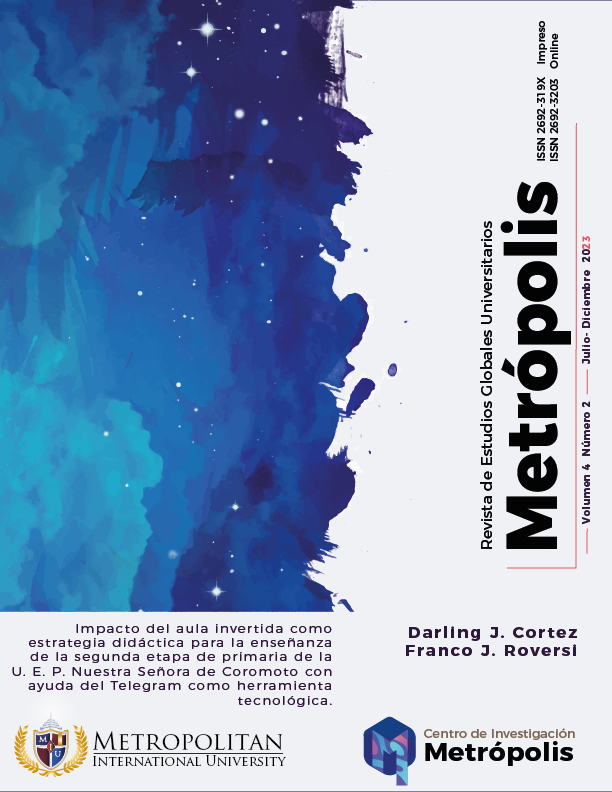Impact of the flipped classroom as a teaching strategy for teaching the second stage of primary school at the U. E. P. Nuestra Señora de Coromoto with the help of Telegram as a technological tool.
Keywords:
Strategy, Flipped classroom, Telegram, Technological tools, LearningAbstract
The present work deepens the research carried out by Lic. Cortez, which was presented at the time to obtain the degree of Bachelor of Comprehensive Education at the Metropolitan University, the research was accompanied and advised by Dr. Roversi Mónaco. The research was ex post facto based on the initial impact of the incorporation of the flipped classroom as a predominant pedagogical strategy with technological support in the Telegram application at the U. E. P Nuestra Señora de Coromoto, an action that was promoted by Lic. Cortez. This first approach generates a change in the pedagogical model of the Institution that is studied by Cortez in the company of Roversi Mónaco, which allows expanding the implementation of both the flipped classroom and the use of Telegram to the fourth, fifth and sixth grades, generating by Consequently, the study on the analysis of the impact of the use of the inverted classroom as a didactic teaching strategy with the support of Telegram, this being the main objective of the study, which also seeks to identify the aspects of teacher training, family integration into school activities and familiarizing to boys and girls with the use of technological applications and tools in their training process. The methodology was proposed from a non-experimental quantitative approach, responding to the statements of Creswell (2014), the work was made up of six (6) teachers from the Institution and the collection of information was carried out through a structured interview and its respective script from Rojas (1987). The findings achieved allowed us to conclude positively about the impact of the flipped classroom in the second stage of basic education, in terms of the development of meaningful learning and motivation to investigate in boys and girls, additionally confirming the importance of the use of applications and technological resources to stimulate learning, research and promoting family-school integration and the involvement of parents and representatives in the activities of their sons and daughters.

Downloads
Published
How to Cite
Issue
Section
License

This work is licensed under a Creative Commons Attribution-NonCommercial-ShareAlike 4.0 International License.



